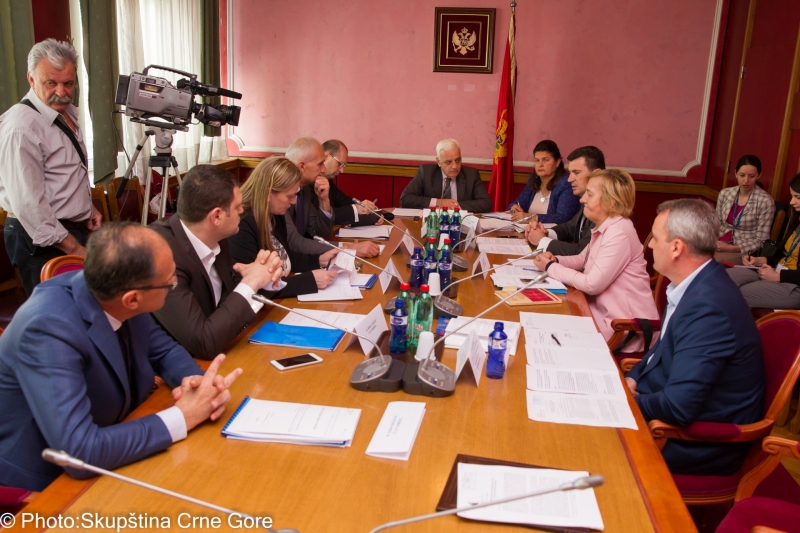Mr Dragan Pejanović, authorised representative of the proposer from the Ministry of the Interior, stated that the main objective of the Proposal for the Law on Amendments to the Personal Data Protection Law was the protection of human rights and freedoms of all citizens of Montenegro, guaranteed by the Constitution. He presented four key issues regulated by the Proposal for the Law. He stressed that the Proposal for the Law explicitly stipulated that approval of the Agency for Personal Data Protection and Free Access to Information was necessary for employing video surveillance of public areas. Deadline for storing surveillance footage has been reduced from one year to six months, thereby material costs are also reduced. In order to create the possibility for using the surveillance footage as evidence in court proceedings, the Proposal for the Law provides that whoever conducts surveillance of public areas must act in accordance with Article 35 of the Law setting out the rules of conducting video surveillance, and Article 37, which stipulates that the records of video surveillance must be kept and the Agency must be informed about that. Upon the suggestion of the Union of Municipalities, the proposer accepted an amendment by the Legislative Committee, stipulating that illegal video surveillance would be removed by the entity governing the public area or facility where video surveillance was installed.
Chairperson of the Committee Mr Halil Duković believes that the solution initially provided by the Proposal for the Law under which the illegal video surveillance from public areas should be removed by communal police is better than solution established by amendment of the Legislative Committee, because it precisely determined one subject - the communal police that would be in charge of executing final decisions and removing cameras. He is convinced that strengthening citizens' awareness to report the illegal video surveillance to the competent authorities will contribute to improving the situation in this area.
Mr Dragan Pejanović from the Ministry of Internal Affairs, and Mr Muhamed Gjokaj, President of the Council of the Agency for Personal Data Protection and Free Access to Information, explained that the solution which envisaged that illegal video surveillance would be removed by the entity governing the public area or facility where video surveillance was installed was better than the first proposal, because governing of public areas was not the responsibility of municipalities only, but also of the “Coastal Commons” and national parks as well. Legal solution like this has not existed in Europe so far, and there is no comparative practice, but the Committee expressed hope that it would be effective and contribute to solving long-standing problems caused by installing of illegal video surveillance.
MPs asked about penalties in case of not removing illegally installed video surveillance, and Ms Zora Čizmović, Head of the Section for Protection of Personal Information and Free Access to
Information, replied that in that case the provisions of the Law on General Administrative Procedure would be applied, and/or administrative enforcement of decisions.
The Committee unanimously supported the Proposal for the Law on Amendments to the Personal Data Protection Law, and proposed to the Parliament of Montenegro to adopt thereof.
Also, the Committee on Human Rights and Freedoms unanimously adopted five information on activities of the Committee for the period January - March 2017.












